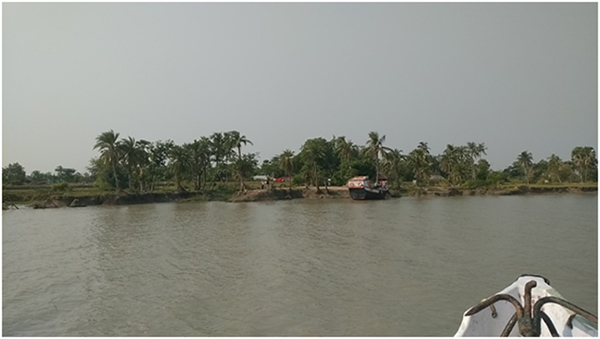Ghoramara gets solar ready
Sapna Gopal
Hitherto, it was an island that made news for all the wrong reasons. Studies found that it was shrinking due to climate change. Now, with solar making an inroad here, things may change for the better, not only for Ghoramara island, but also for the inhabitants.
An initiative by the Department of Science and Technology, Government of India, it is being implemented by IIT Kharagpur and Dr S P Gon Chaudhuri, a veteran in the renewable energy sector, is chairman of its implementation committee.
Dr Chaudhuri who was at the island on November 13, 2022, believes it has ample sunlight throughout the year and that is one of the main reasons why a 250KW solar photovoltaic power plant with a mini grid has been considered here. “It has been decided that a 10KW wind generator will be integrated with the solar power plant. Additionally, there will be 4 electric rickshaws on the island which will be charged from a separate solar power station ---a solar powered electric boat will also be kept on the Island to ferry people to the mainland in case of an emergency.”
Located around 110 km from Kolkata, the Ghoramara Island falls under the Sundarbans region of West Bengal. With a population of about 5,000, it has no other energy resource and solar is the only viable option.
“Since it is 6 km away from the mainland, one has to cross the river Ganges to reach the island. Also, it is not only very expensive to take the conventional electric line to the Island, there are technical challenges as well,” he explains.

A view of the island
Solar to the rescue
Allaying fears, Dr Chaudhuri feels though there were earlier reports which spoke of the island shrinking, according to some latest reports, a part of the Island is still stable. “People may live here for the next 20 years or so. Also, the solar power plant will change their lifestyle---They will have access to clean drinking water, the internal transportation system will be strengthened, due to the introduction of electric rickshaws and electric boats. The school will get power and computers will be introduced. All houses will be covered with 230V AC electric power. With all this, the economic activities will heighten---tourism will develop due to availability of electricity, the mobile phone network will start operating and communication will be established with the outer world. In other words, solar will alter the lifestyle of people living on Ghoramara Island,” he stresses.
Encouragingly, people of the Island are excited to get solar power as well. According to Dr Chaudhuri, they are ready to pay the necessary electricity charges. “Kerosene is really expensive on the Island and they want to get rid of it. Also, the cases of snake bite are very high in the island. With the availability of streetlights and with electrification, the number of snake bite cases will reduce.”
Access to safe drinking water in the village is one more advantage for people of the Island. Furthermore, all 1,100 families here will form an island energy-co-operative which will run the power plant and make this a unique example in the country, he adds. What is also noteworthy is that the power plant and other solar appliances in the island can be monitored from any part of the globe.

Share this article